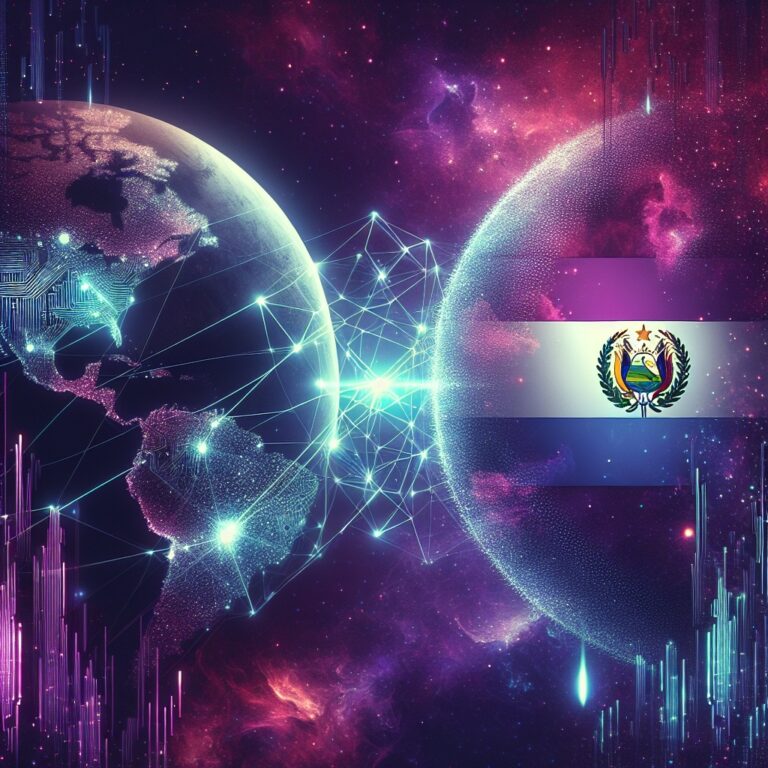In a bold move that underscores the shifting sands of global finance, Bolivia has inked a partnership with El Salvador to champion cryptocurrency as a viable alternative to traditional fiat currencies. This agreement, signed in late July, aims to provide Bolivia with a lifeline amidst its ongoing economic turmoil, embracing the digital currency revolution as a potential savior.
A New Dawn for Bolivia?
Bolivia’s economic woes are no secret, plagued by inflation and a volatile currency that has left many searching for stability. Enter cryptocurrency. El Salvador—already a pioneer in the crypto realm with its historic adoption of Bitcoin as legal tender back in 2021—now extends its hand to Bolivia, offering its expertise and experience in digital currency integration. For more on Bolivia’s efforts to establish a regulatory framework, see Bolivia Looks to El Salvador for Help Building Its Crypto Regulatory Framework.
“We’re witnessing a pivotal moment,” says Mariana Torres, a financial analyst specializing in Latin American markets. “Bolivia’s decision to partner with El Salvador could very well redefine its financial landscape, offering citizens a reliable alternative to the beleaguered fiat system.”
This partnership is more than a handshake. It’s an embodiment of shared goals: economic stability through innovation. With El Salvador’s proven track record in navigating the crypto waters, Bolivia seems poised to follow suit, albeit cautiously, to mitigate the risks associated with digital currencies’ infamous volatility.
Lessons from El Salvador
El Salvador’s embrace of Bitcoin was met with both fanfare and skepticism. The country has faced its fair share of growing pains, from technical issues with its Chivo Wallet to international scrutiny over its Bitcoin bonds. Yet, according to President Nayib Bukele, the move has attracted tourism and investment, with the potential for long-term economic benefits still unfolding.
“Bolivia can learn from El Salvador’s mistakes and successes,” notes Carlos Mendoza, a crypto strategist. “By leveraging El Salvador’s experience, Bolivia can avoid pitfalls and capitalize on what’s worked—like building robust infrastructure and ensuring widespread access to digital wallets.”
But here’s the catch: Bolivia’s path won’t be without hurdles. The nation must address its technological gaps and foster public trust in crypto, which remains a contentious issue. However, the potential payoff—a robust financial system less susceptible to inflation and external shocks—could be a game-changer. This aligns with broader trends, as seen in GameStop CEO teases crypto payments, says Bitcoin buys are inflation hedge.
The Road Ahead
As Bolivia sets its sights on this digital frontier, questions linger about the feasibility of such a transformation. Will the Bolivian public embrace crypto as readily as El Salvador’s citizens have? And more critically, can this alliance withstand the global scrutiny that accompanies such a monumental shift?
Experts are cautiously optimistic. “This could spark a regional trend,” suggests Laura Castillo, an economist focusing on emerging markets. “If Bolivia successfully integrates crypto, we might see other Latin American countries reconsidering their stance.”
Yet, the road is fraught with uncertainty. Regulatory challenges loom large, and the volatile nature of cryptocurrencies could pose significant risks to an already fragile economy. But with El Salvador’s guidance, Bolivia might just chart a course through these uncharted waters.
Looking Forward
The partnership between Bolivia and El Salvador marks a potentially transformative chapter for both nations. While the outcome remains uncertain, one thing is clear: the world is watching closely. As Bolivia steps into the crypto spotlight, its success—or failure—could have far-reaching implications, influencing global perspectives on the role of digital currencies in modern economies.
As July 2025 draws to a close, Bolivia stands at the precipice of change. Whether this bold initiative will lead to economic salvation or stumble under the weight of its ambitions is a question only time will answer. For now, the crypto community waits with bated breath, eager to see if Bolivia’s leap of faith will pay off in a world continually reshaped by technological innovation.
Source
This article is based on: Bolivia calls crypto ‘reliable alternative’ to fiat in El Salvador partnership
Further Reading
Deepen your understanding with these related articles:
- GameStop CEO Ryan Cohen Talks Bitcoin Strategy, Teases Potential Crypto Payments
- GameStop CEO Ryan Cohen Mulls Crypto Payments After $500 Million Bitcoin Bet
- PayPal to Enable Businesses to Accept Bitcoin, Ethereum and Other Cryptocurrencies

Steve Gregory is a lawyer in the United States who specializes in licensing for cryptocurrency companies and products. Steve began his career as an attorney in 2015 but made the switch to working in cryptocurrency full time shortly after joining the original team at Gemini Trust Company, an early cryptocurrency exchange based in New York City. Steve then joined CEX.io and was able to launch their regulated US-based cryptocurrency. Steve then went on to become the CEO at currency.com when he ran for four years and was able to lead currency.com to being fully acquired in 2025.


